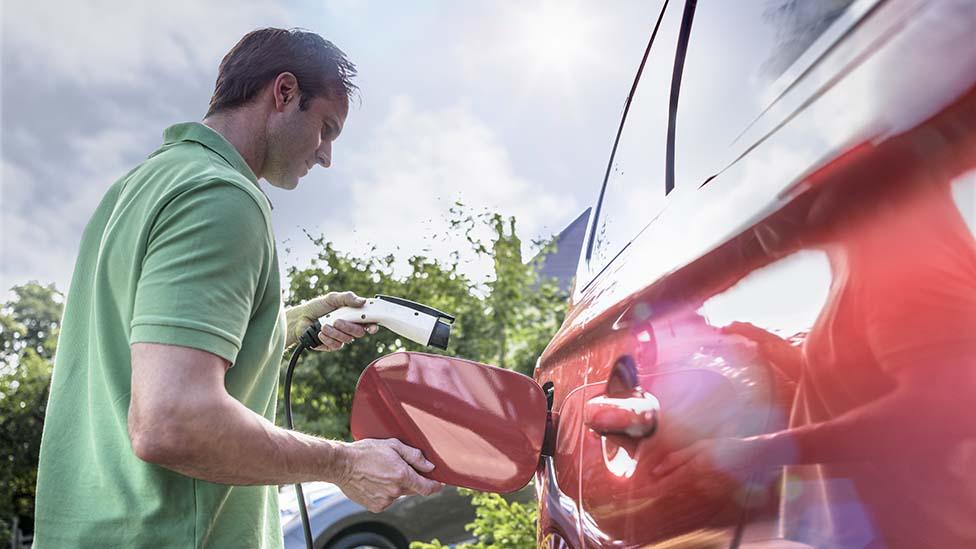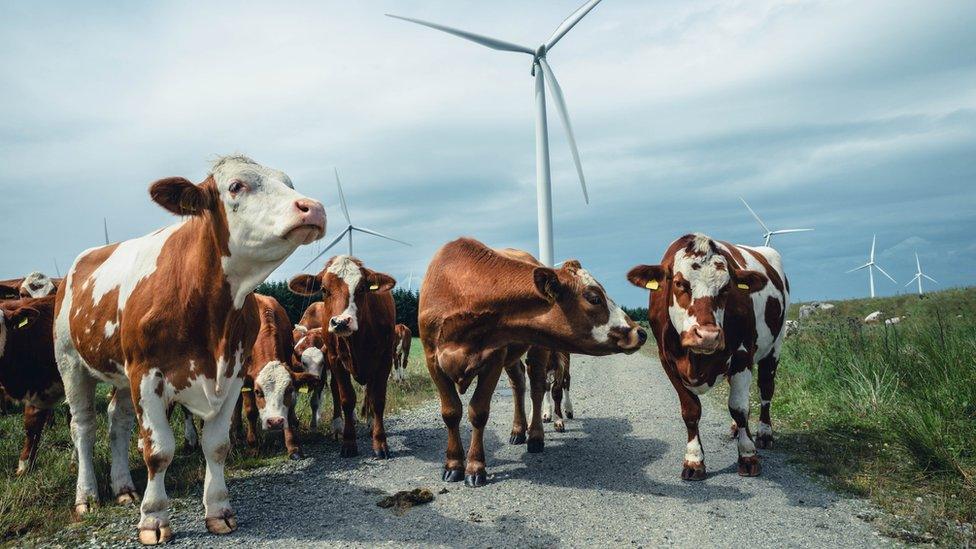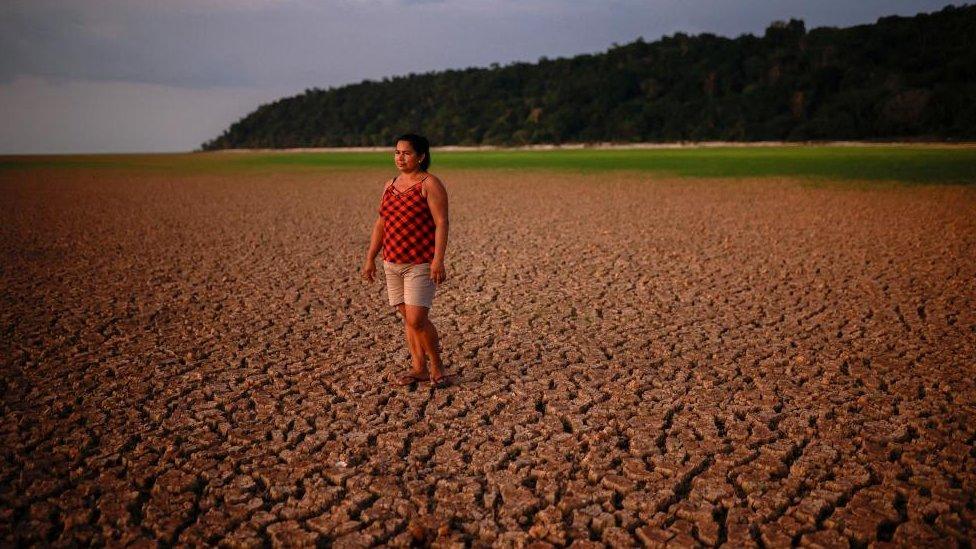COP26: 'Moment of truth' as world meets for climate summit
- Published
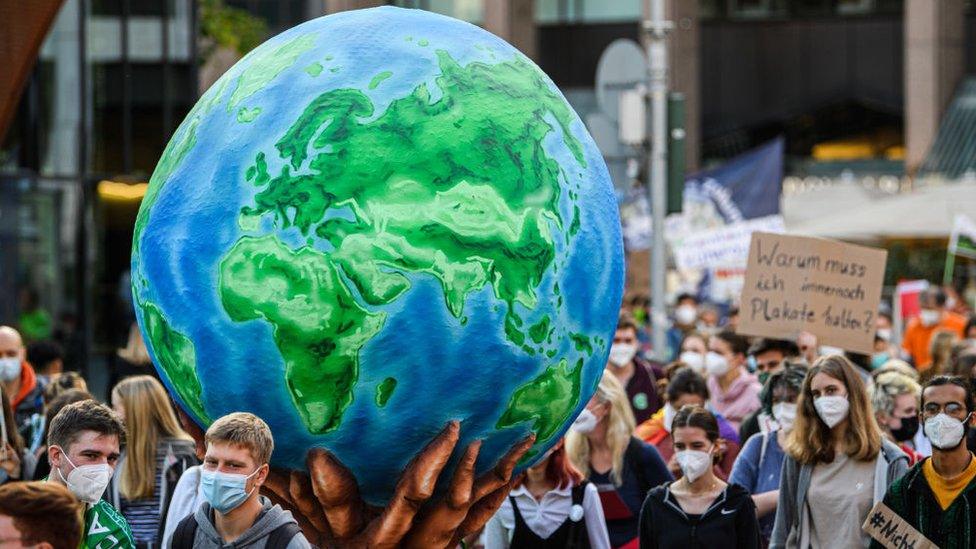
There have been protests to demand climate change action around the world in the lead up to COP26, such as this one in Dusseldorf, Germany
The highly anticipated COP26 climate change summit has begun in the Scottish city of Glasgow.
Delegates from around 200 countries are there to announce how they will cut emissions by 2030 and help the planet.
With the world warming because of fossil fuel emissions caused by humans, scientists warn that urgent action is needed to avoid a climate catastrophe.
UK Prime Minister Boris Johnson said the summit will be the "world's moment of truth".
Speaking ahead of the two-week conference, Mr Johnson urged leaders to make the most of it: "The question everyone is asking is whether we seize this moment or let it slip away."
COP26 President Alok Sharma said agreement would be "tougher than what we achieved in Paris" five years ago, when almost all the world's nations agreed a treaty to "pursue efforts" to limit the global temperature rise to 1.5C.
"This is on leaders," he told BBC One's Andrew Marr Show. "They need to come forward and we need to collectively agree how we are going to meet this goal."
He said "we expected more" of countries such as China, the world's largest carbon emitter, and called the summit a "real opportunity" for them to show leadership.
COP26 President Alok Sharma says reaching agreements on 1.5C maximum global warming will be ''very very tough"
Day one of the summit will see a report on the state of the climate released by the World Meteorological Organization (WMO).
The WMO's provisional report by climate scientists will compare global temperatures this year so far with previous years.
Extreme weather events linked to climate change - including heatwaves, floods and forest fires - are intensifying.
The past decade was the warmest on record, and governments agree urgent collective action is needed.
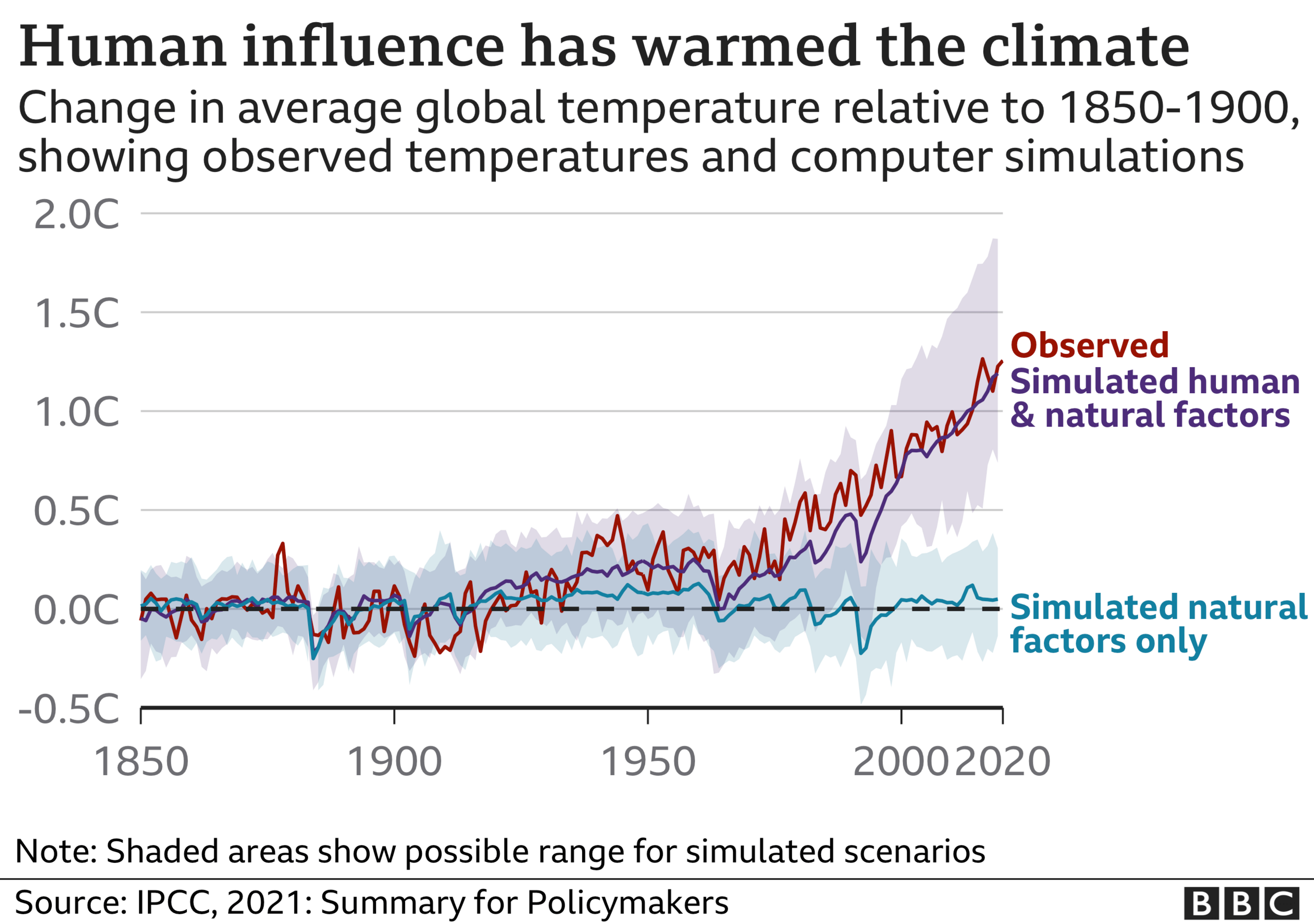

The United Nations gathering is one of the biggest summits the UK has ever hosted, and was delayed for a year because of the pandemic. COP stands for "conference of the parties" and it is the 26th such conference.
Most of the leaders will arrive late on Sunday evening. Many are travelling from another summit, the G20, in Rome.
Sunday is largely a ceremonial opening day, with various speeches from people including Abdulla Shahid, the president of the UN General Assembly and Foreign Minister of the Maldives. The low-lying islands of the Maldives are threatened by climate change because of rising sea levels.
Countries from every region of the world will have representatives in Glasgow, ready to discuss their plans to cut emissions by 2030.
They all agreed in 2015 to make changes to keep global warming "well below" 2C above pre-industrial levels but since then, as extreme weather events have intensified, climate scientists have urged nations to aim for 1.5C to limit the risk of environmental disaster.

Can COP26 really save the planet?

At face value, things do not look promising, for a simple reason: the previous 25 of these giant conferences failed to turn off the tap of the greenhouse gases that are driving up global temperatures.
Despite three decades of talking, the planet is now at least 1.1C hotter than the pre-industrial level - and rising.
For this conference, however, expectations for real progress are higher than usual.
That's partly because the risks are hitting home. This year floods killed 200 people in Germany, heatwaves struck chilly Canada and even the Siberian Arctic was burning.
And scientists are clearer than ever that avoiding the most damaging temperatures means halving global carbon emissions by 2030 - a deadline looming close enough to focus minds.

At the G20 in Rome, a draft communiqué said the leaders will pledge to take urgent steps to reach those goals. But already a key pledge to deliver $100bn (£73bn) a year in climate finance to developing countries has been pushed out to 2023.
Prince Charles addressed the G20 summit on Sunday, telling world leaders they have "an overwhelming responsibility to generations yet unborn" at COP26, and saying he detects "a change in attitudes and the build-up of positive momentum" to take urgent action.
Watch Prince Charles call for actions on climate change for the "future of humanity and nature"

COP26 climate summit - The basics
Climate change is one of the world's most pressing problems. Governments must promise more ambitious cuts in warming gases if we are to prevent greater global temperature rises.
The summit in Glasgow is where change could happen. You need to watch for the promises made by the world's biggest polluters, like the US and China, and whether poorer countries are getting the support they need.
All our lives will change. Decisions made here could impact our jobs, how we heat our homes, what we eat and how we travel.

Host of the summit, the UK has set a target for all of the nation's electricity to come from clean sources by 2035, and reduce its greenhouse-gas emissions to net zero by 2050. But some experts have said this is not achievable with the government's current policies.
Asked on the Andrew Marr Show if plans being considered to develop the Cambo oil fields near Shetland set a bad example to other nations, Mr Sharma said people would have to "wait and see" for a decision.
Lord Deben, chair of the independent Climate Change Committee, which advises the UK government, has said the proposal "set an example which will be quoted throughout the world".

An authentic Glasgow welcome
By Debbie Jackson, BBC Scotland reporter, at the scene
COP26 delegates are greeted with an authentic Glasgow welcome - it's a gloomy Sunday and the rain is pouring down.
Traffic in the city centre is made up of electric buses, brought in to service the conference, and police vans from across the UK.
Climate campaigners make their way along the river with damp flags, and the COP26 volunteers try to remain cheery in their sodden bobble hats.
Blue-lanyarded delegates are being dropped off at the squinty bridge to walk to the venue.
I bump into delegates from Gabon who arrived less than 24 hours ago. They've just had breakfast in a local café and are ready to make their case.
Ghislain Moussavou, director general of the government's forestry commission, is here with a private contractor, Hadi Ghossein.
Mr Moussavou says: "We are here to speak up for Africa. We are doing a lot to combat the effects of climate change and we bear a lot of its impact."

Scotland's First Minister Nicola Sturgeon met with indigenous people from the Americas in Glasgow on Saturday, and said the Scottish government would "do everything and anything we can" to help poorer nations and communities that are more vulnerable to the effects of climate change.
The heads of state will be joined by some of the world's leading climate activists, including Sir David Attenborough and Greta Thunberg - who was mobbed as she arrived on a "climate train" on Saturday evening.
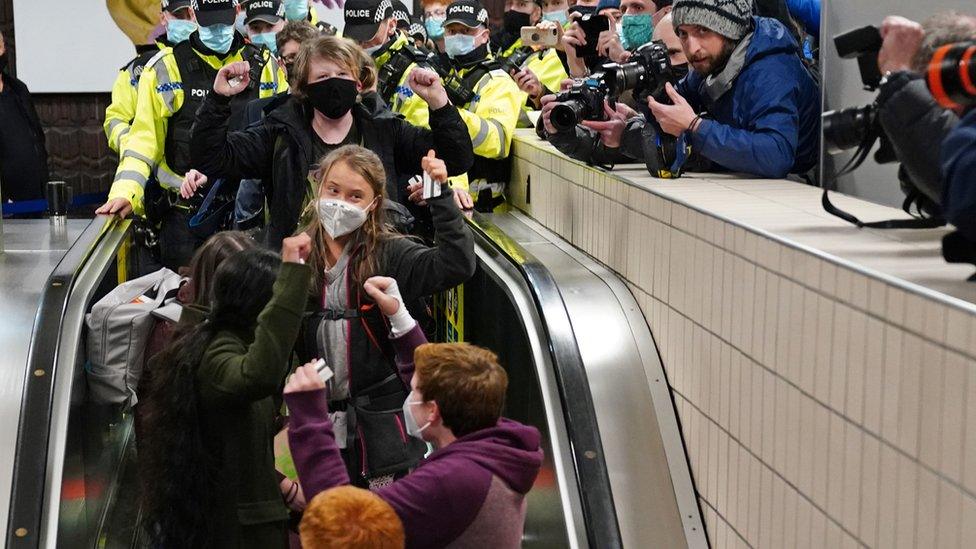
Swedish climate activist Greta Thunberg travelled to Glasgow by train
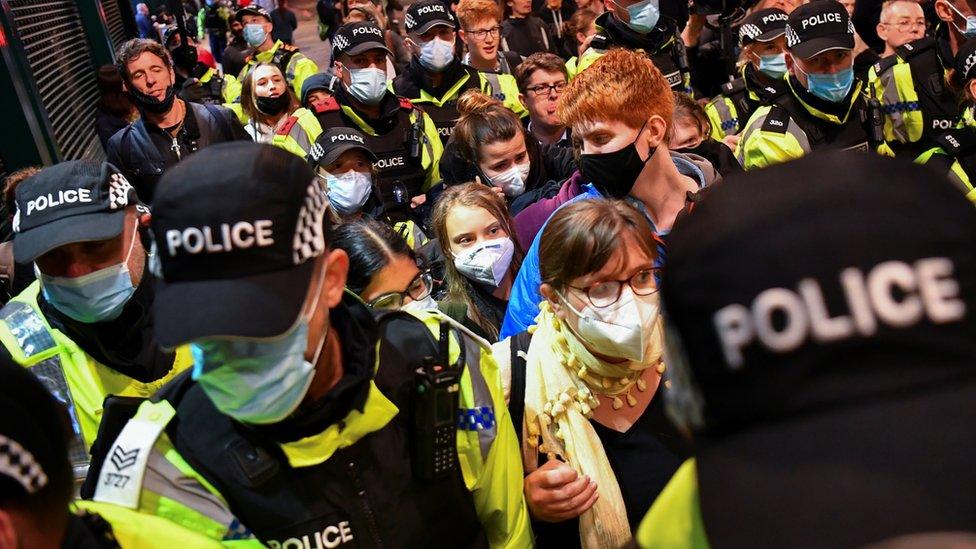
The specially chartered train, which arrived from Amsterdam, also had on board some 500 passengers including delegates from the Netherlands, Belgium, Italy and Germany, as well as 150 youth activists and members of the European Parliament.
Many participants and activists are taking the train to Glasgow as it is a more sustainable way to travel than flying.
Climate change: How 1.5C could change the world

The COP26 global climate summit in Glasgow in November is seen as crucial if climate change is to be brought under control. Almost 200 countries are being asked for their plans to cut emissions, and it could lead to major changes to our everyday lives.

Related topics
- Published13 November 2024
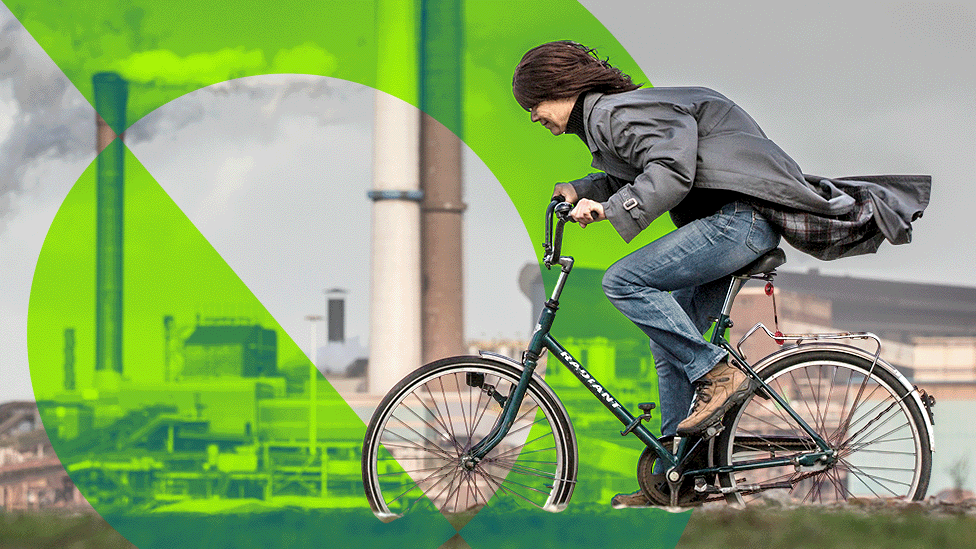
- Published9 August 2021
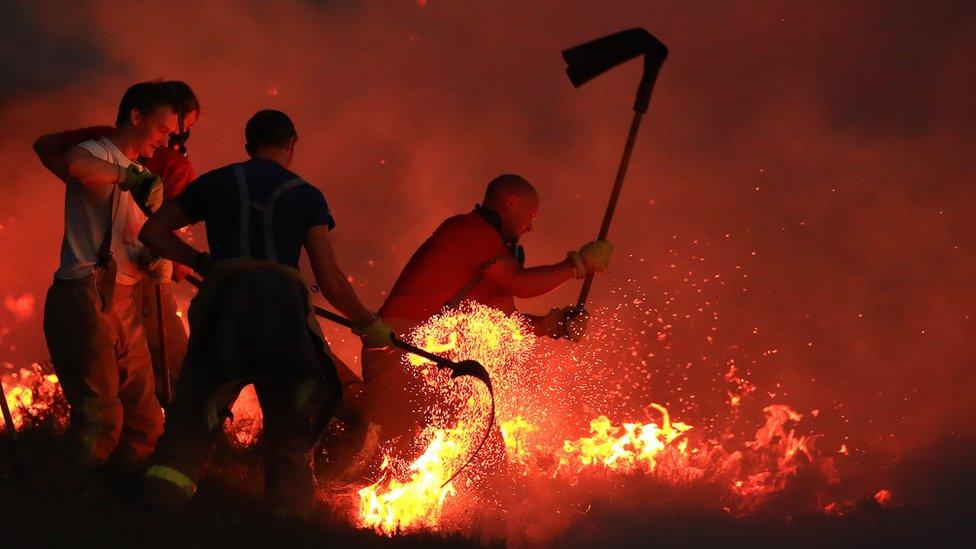
- Published11 November 2021
